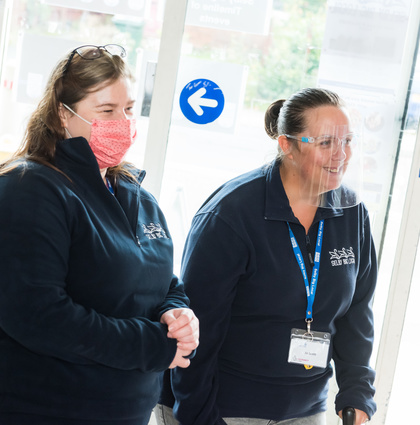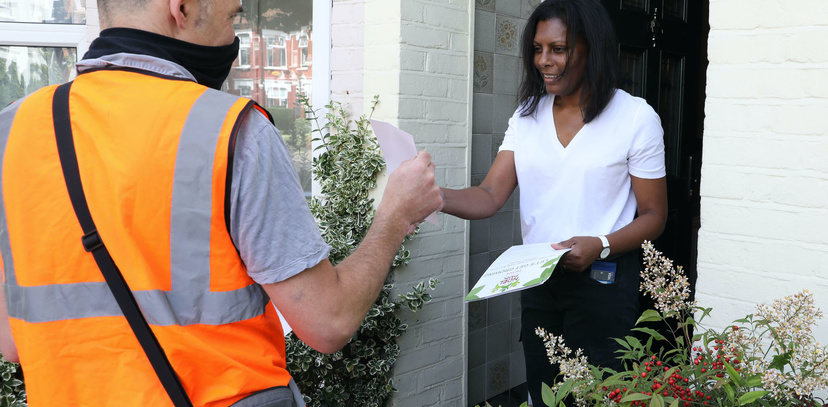

Lisa-Marie Giquel blogs about the importance of trust and drawing on existing relationships in the Local Trust's research on the impact of COVID-19 on local communities.
Lisa-Marie is a researcher at the Local Trust.
Since April 2020, Local Trust have been researching how 26 communities across England have responded to, and will emerge from, the COVID-19 pandemic. This is a research project that is about community responses to a crisis, as it is experienced. The research is led by the Third Sector Research Centre, who are coordinating a group of researchers from other organisations.
I am not one of those researchers, nor am I carrying out fieldwork, but I was able to share a glimpse of what it has been like for some of the researchers. However, listening to the other speakers at Social Life's webinar, each talking about different projects, continents and approaches, it made me reflect on a number of things.
In my presentation, I spoke a bit about the importance of relationships and trust to our research. I do not think we would have been able to work in the communities we are working in or have been able to start the research as quickly as we were able to, had these not been present.
The researchers we commission have been working in the communities in some capacity for some time. They had connections, relationships and an understanding that enabled them to start a new project quickly during a very challenging time for communities. In turn, we had also been working with the researchers involved for a number of years too. For me, this was crucial and something other presenters also spoke of in different ways, whether between the researchers themselves or between the researchers and the participants.
The researchers on our project also reflected that interviews with participants felt less like formal, structured interviews and more like ‘learning conversations’. They included elements of information sharing and support, which made me think of the recipe sharing and the network of researchers carrying out fieldwork in Debora Delgado Pugley’s study.
In our research, participants have been keen to know what the other communities involved in the project had been doing and how. Further, some of the researchers themselves have shared links to resources and information that participants might find helpful as they responded to the pandemic locally. There is an element of learning, networking and support that I think we could build on further in our research.
A final thought relates to having a responsibility to participants. Our research wasn’t originally designed as a collaborative piece, but it is important that those involved feel that they, and their communities, are benefiting from it and feel it is worth their time, even more so given the context. This is something we can continue to pay attention to. In my presentation, I mentioned the benefit for us as a research team, and an organisation commissioning research, to have regular outputs to learn from and work with.
I feel there is tremendous value in having these, but they also come with a responsibility to share them, learn from them and act on them. They can help to start conversations, strengthen an understanding, improve an intervention or be used to influence in support of a broader change that would impact communities across the country. They carry the voices, experiences, power, hopes, fears and calls of communities within them.
Credits for photo CL3A9782_1: James O Jenkins
Caption: A volunteer delivers plants to a local resident as part of the ‘Let’s get growing initiative’ in Noel Park Big Local, North London
Photos: A volunteer delivers plants to a local resident as part of the ‘Let’s get growing initiative’ in Noel Park Big Local, North London, James O. Jenkins (centre); Members of the Selby Big Local partnership discussing plans for their new community-run space during a drop-in session in Selby, North Yorkshire, Jonathan Pow
#RespondRenew
